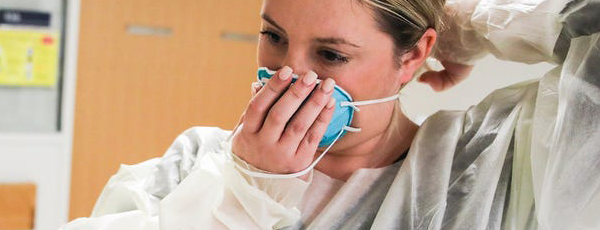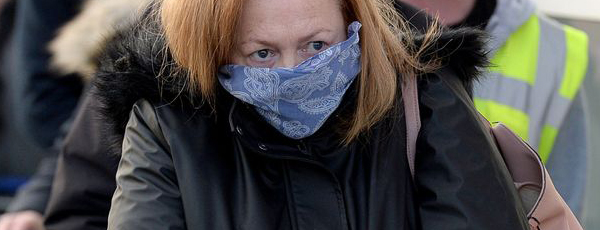Remedies to healthcare staff, and the general public, who are suffering from friction and pressure damage through the use of protective masks
DOCTORS and nurses on the Covid-19 frontline are spending many hours a day wearing face masks, and many members of the general public are doing the same. But although the devices offer invaluable protection, they can be the cause of significant skin damage through sweating and the rubbing of the masks against the nose.
Skin care experts at the University of Huddersfield are warning of the risks and suggesting remedies.
Professor Karen Ousey is Director at the Institute of Skin Integrity and Infection Prevention at the University and she was part of a team that conducted detailed research into the pressure damage that can be caused by a wide range of medical devices, including face masks. The findings and recommendations were published in February.
Now, the current emergency emphasises the problems that can arise with face masks being worn for long periods of time by healthcare professionals.
“The wearers are sweating underneath the masks and this causes friction, leading to pressure damage on the nose and cheeks,” said Professor Ousey. “There can be tears to the skin as a result and these can lead to potential infection,” she added.
The masks the healthcare professionals are wearing have to be fitted to the face. “If healthcare professionals add dressings to the skin under the mask after being fitted, there is a chance that the mask will no longer fit correctly,” continued Professor Ousey.
She suggests that people wearing masks keep their skin clean, well-hydrated and moisturised and that barrier creams should be applied at least half an hour before masks are put on.
“And we are suggesting that pressure from the mask is relieved every two hours. So you come away from the patient, relieve the pressure in a safe place and clean the skin again.”
Professor Ousey advises members of the general public – such as shop workers – who are wearing masks to keep their skin clean, dry and free of sweat.
“And if they do feel their masks rubbing, take them off as soon as they safely can.”
Professor Ousey was a member of a global team that last year met in London to pool research on device-related pressure ulcers. It has now produced a 52-page document – published by the Journal of Wound Care – that examines the issues in detail.
The team was headed by Amit Gefen, who is Professor of Biomedical Engineering at Tel Aviv University and a Visiting Professor at the University of Huddersfield’s Institute of Skin Integrity and Infection Prevention.
Professor Gefen is recording a video session dealing with device-related pressure ulcers that will shortly appear on the Institute’s website.
Professor Ousey also urges members of the public to visit the National Wound Care Strategy webpage, which offers wide-ranging advice on wound care and pressure ulcers.
Covid-19 – how to keep your immune system strong
Huddersfield pharmacists offer advice on keeping your immune system strong and staying safe
Healthcare students to help NHS against Covid-19
Department of Nursing and Midwifery final-year and second-year students called into action against the coronavirus
Uni helps local SMEs supply vital medical products
A team of advisors at the University of Huddersfield is helping to ensure that regional firms play a key supply role in combatting Covid-19


